Font-Size
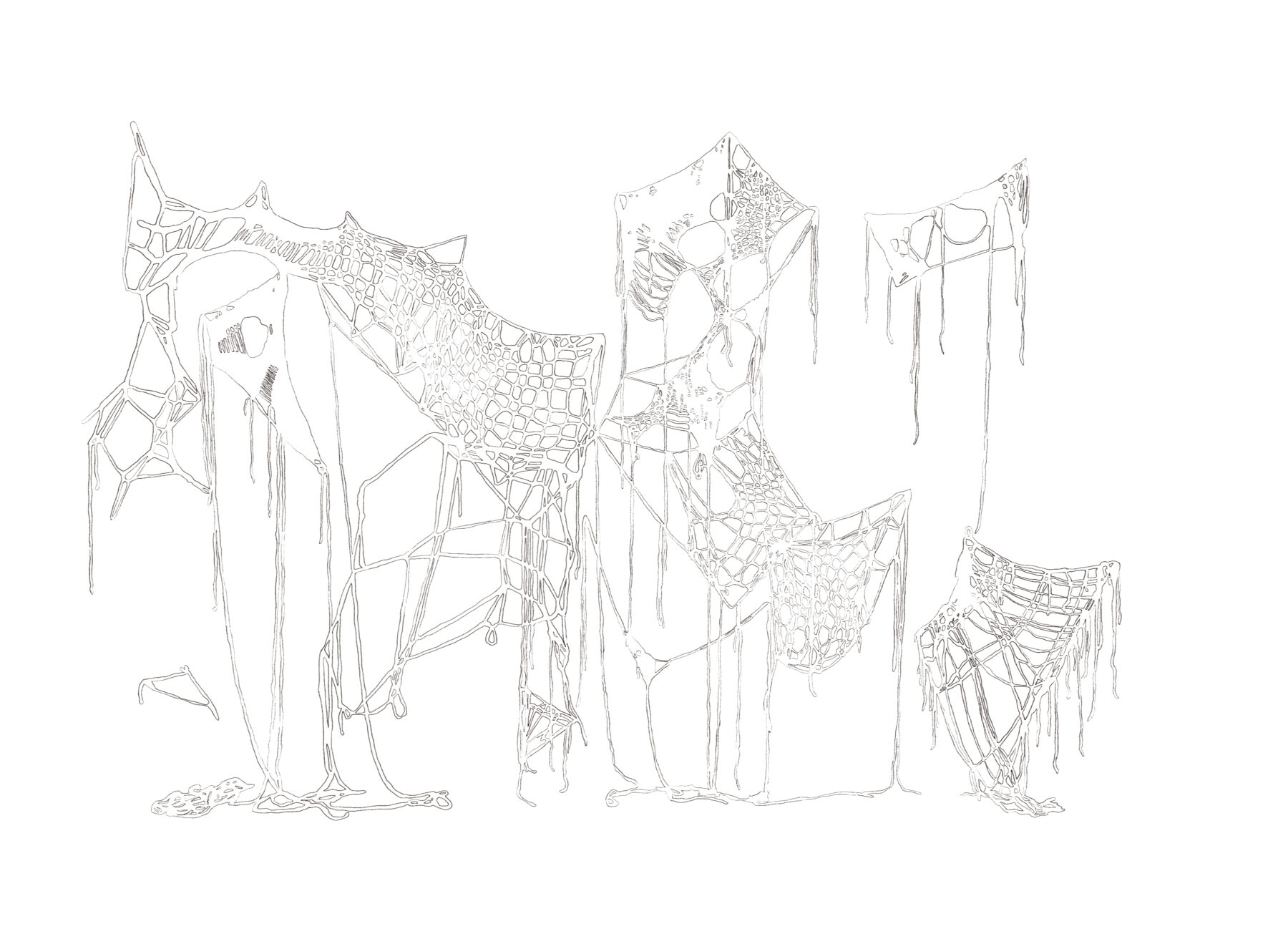
hand knitted by my own hands.
close to my body, my hands knitting and knotting.
fragile structure, connected by threads.
connected by ideas and wishes for something different.
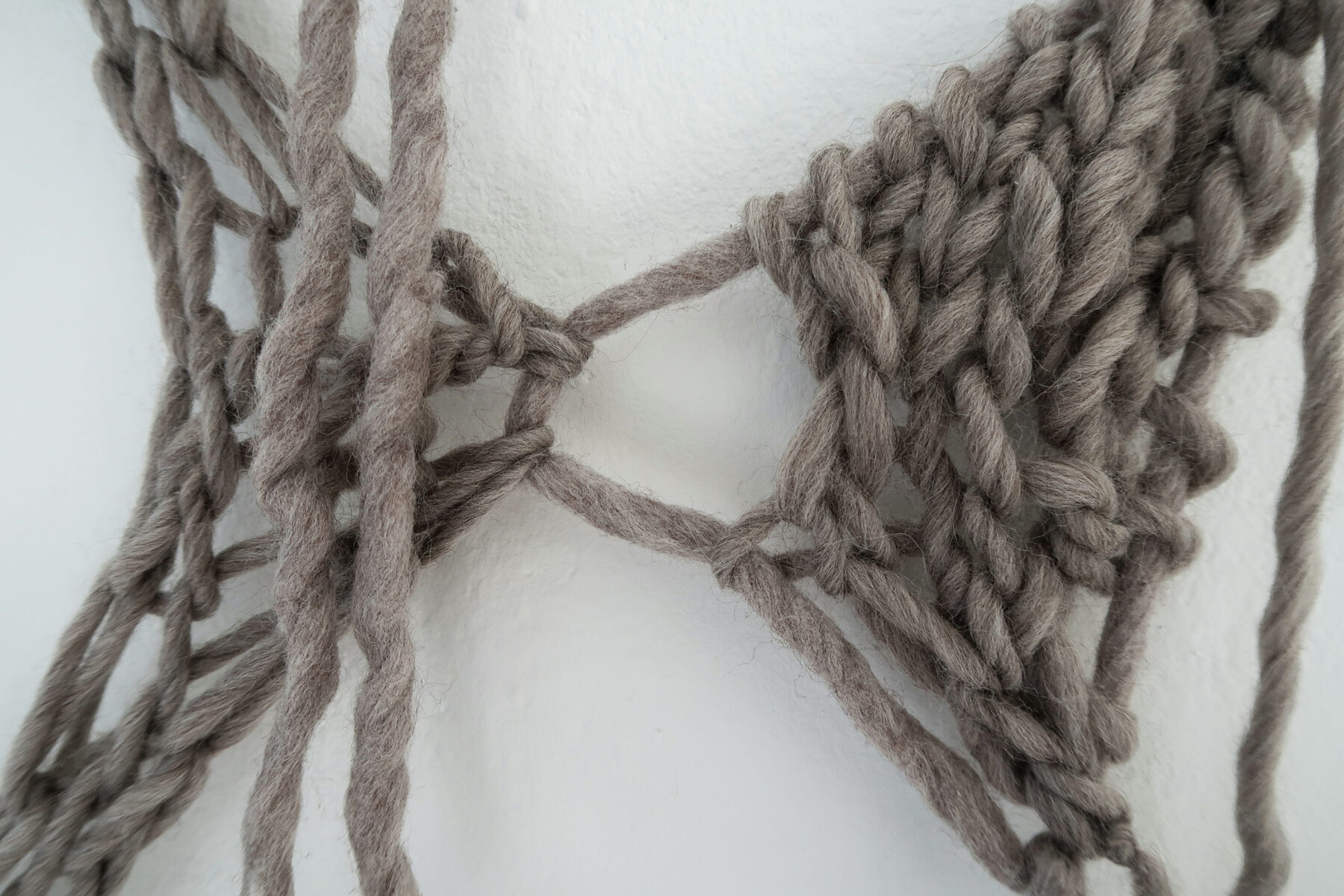
attachment, detachment.
to the land that connects and deconnects.
the one that is destroyed and destroys and connects and collects.
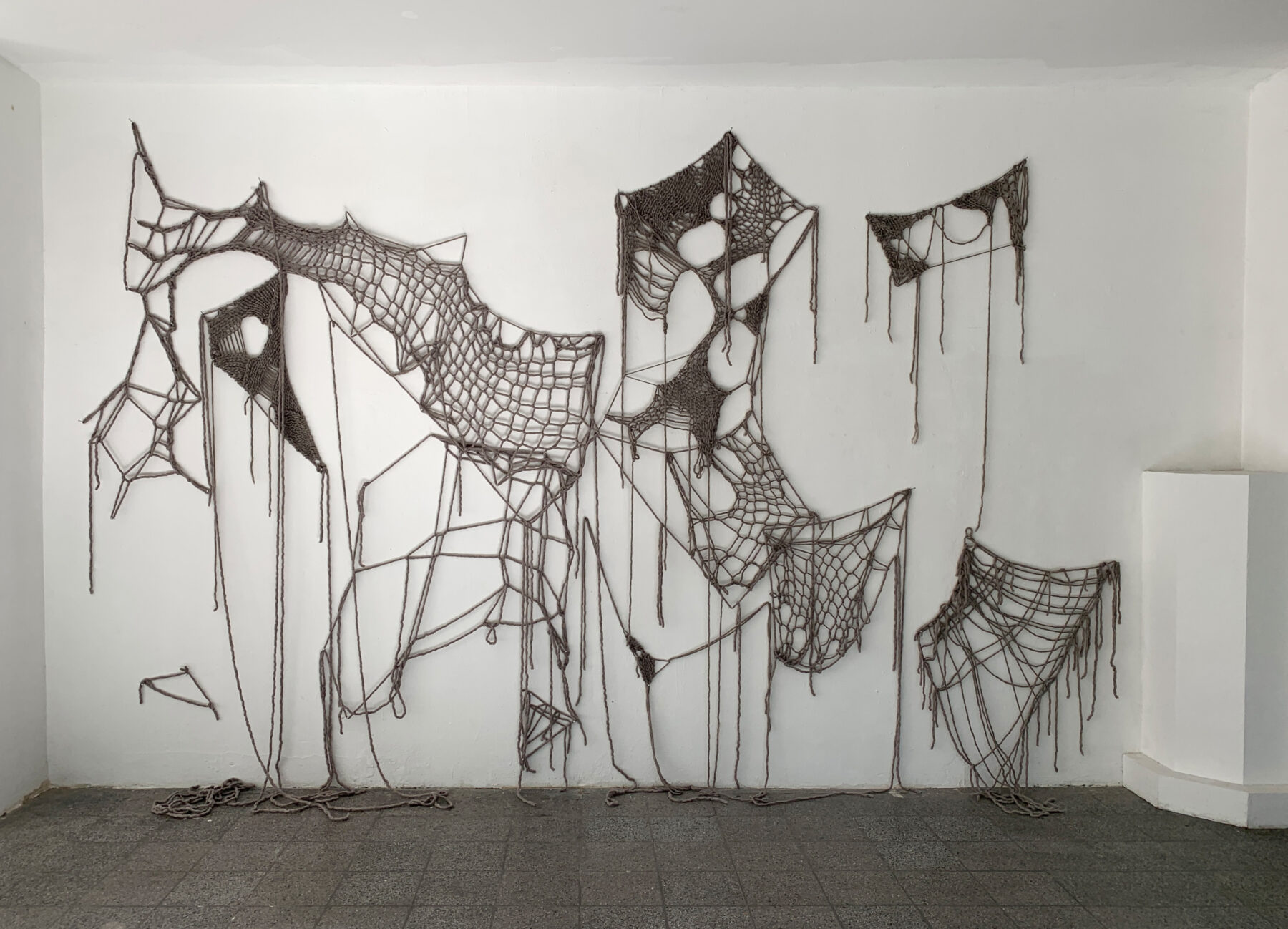
the one that does not give but makes us hope.
torn. tense. distortion. home.
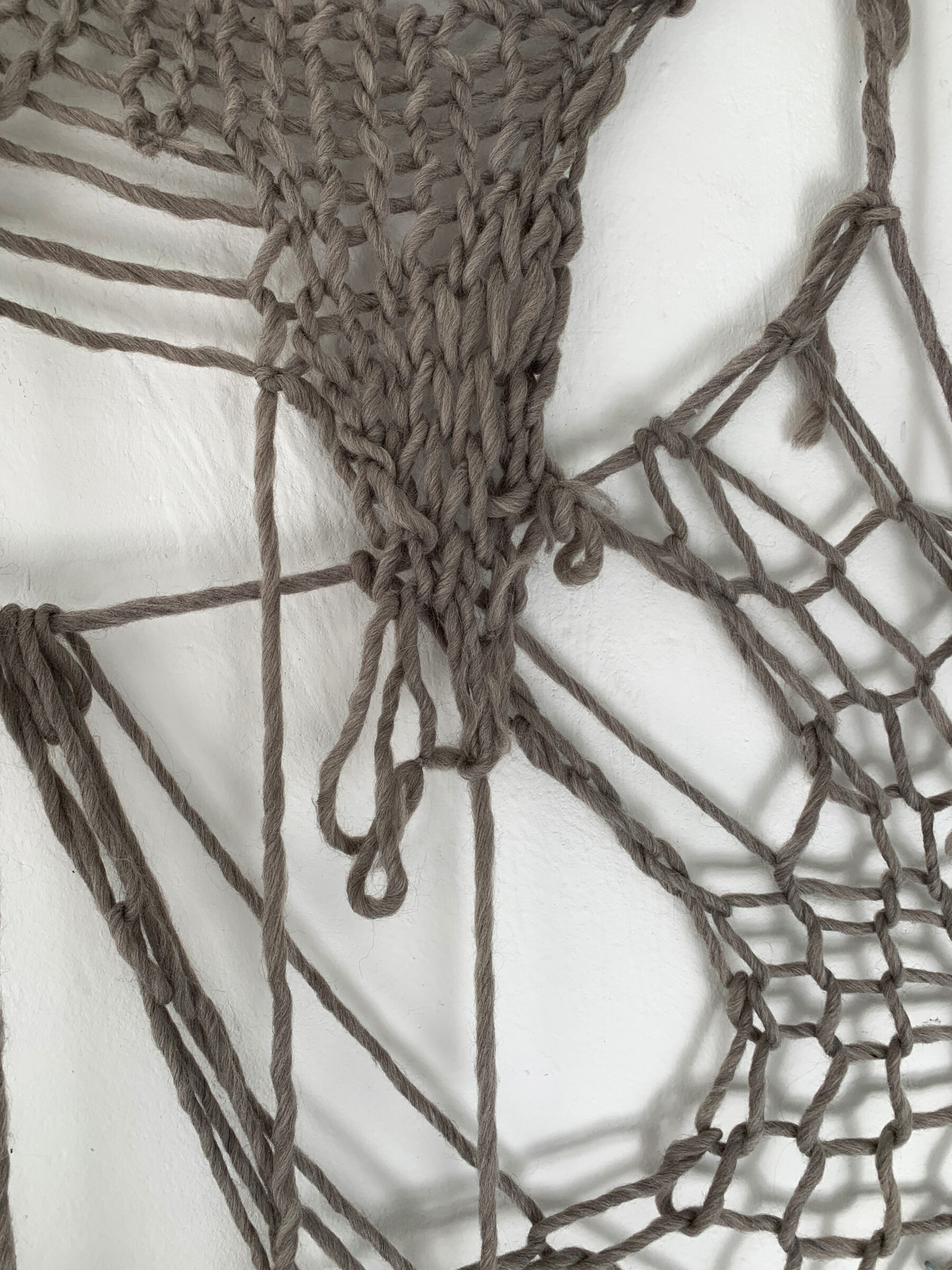
it’s about searching for one’s own place.
that’s not true, stop, incision, not to search,
but to drift there, to flow and to find.
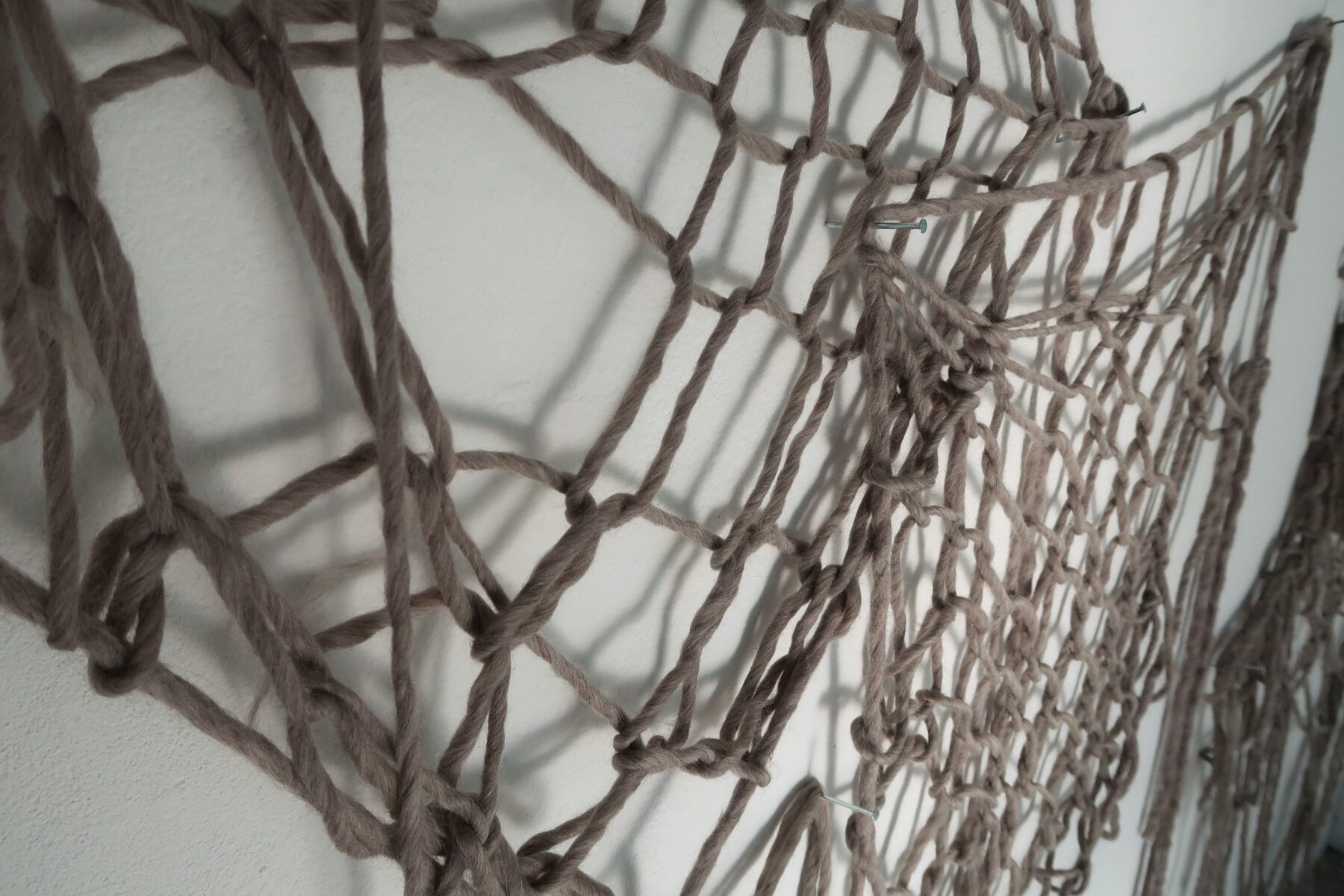
it’s about the desire to arrive,
in places where one is not at home.
it’s about loss, displacement and being driven away,
rather obviously or even just subtly.
